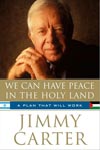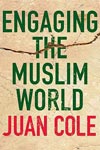
Engaging Islam in the Age of Obama
With Barack Obama at the helm, US foreign policy towards the Muslim world has already taken a drastically different tack. In the first three months of his presidency Obama pledged to withdraw American troops from Iraq, charmed the Turks, and extended a YouTube olive branch to the Iranian people. But with a global economic crisis to solve, a health care plan to pass, and nearly a hundred years of entrenched American interests in the Middle East, how much can Obama really change?
After nearly a decade of books attacking, defending, and explaining Islam, the newest crop of books about the United States’ relationship with the Muslim world has a decidedly hopeful twist. Here are four of the best:

In clear and elegant prose, Religious Studies scholar and Daily Show regular Reza Aslan breaks down the faulty logic of the Bush Administration’s War on Terror and lays out a new way forward. “It is time to strip this ideological conflict of its religious connotations,” he writes. “To reject the religiously polarizing rhetoric of our leaders and theirs . . . and to address the earthly issues that always lie behind the cosmic impluse.”

This thoughtful and much-needed book eschews the partisan recriminations and historical gerrymandering that typify most discussions of the Palestinian-Israeli conflict. Instead, former President Carter offers a pragmatic solution to the problem, arguing that these next few years may be the last chance for a two-state solution. “The time is now,” he writes. “Peace is possible.”

University of Michigan professor and blogger, Juan Cole argues for a new and more subtle approach to our relationship with the Muslim world. According to John Esposito, the Grand Poobah of Islam scholars, the book is “a MUST read, the right book at the right time for anyone who wants to understand ‘What went wrong, why, and where do we go from here.’”

You might remember Columbia Professor Rashid Khalidi from the bit role he played at the end of the election. He was the “former terrorist” whose farewell dinner Obama attended in Los Angeles. In reality, Khalidi is a highly lauded scholar and an incisive commentator on the politics of the Middle East. His new book argues that current conflicts in the region can be traced back to American and Soviet cold war policies.
